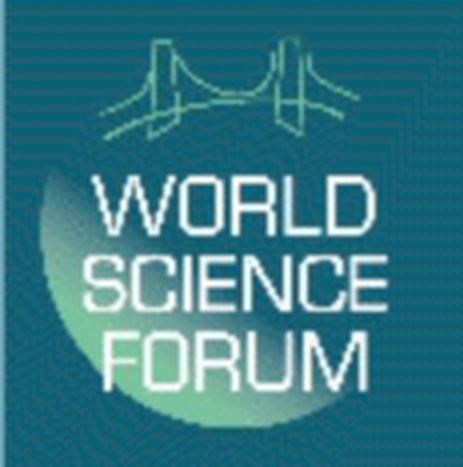
World Science Forum in Budapest
Published on
The World Science Forum, a three-day conference entitled "Investing in Knowledge: Investing in the Future", is opened at the Hungarian Academy of Sciences (MTA). The World Science Forum, being held for the third time in Budapest, is host to 400 scientists and scholars from over 60 countries, as well as senior political decision makers.
The prestigious event is jointly organised by the MTA, UNESCO, the International Council for Science (ICSU) and the European Union.
Hungarian President Laszlo Solyom said in his opening address, "It has finally dawned on us just how unsustainable the way humankind governs its life on the planet truly is." "The planet is not a subsystem of the economy but quite the opposite: the economy is a subsystem of our complex human society that, in turn, is embedded in and dependent on the natural systems of the planet. Governments have to act with urgency; they have to invest public resources quickly, having recognised this paradigm," the president said. "Who needs more knowledge, and who needs knowledge more: the electorate, the consumer or politicians and business leaders; the industrialised North or the accelerating South?"
Hungarian President Laszlo Solyom also proposed setting up a UN-based world environment organisation with enhanced powers. " Globalisation can only benefit the world if powerful international environmental governance sets it on a path of sustainability," the president said.
Solyom said the participation of the Croatian, Greek and Austrian presidents in the forum was a reflection of the fact that many European heads of state are ready to express their commitment to protecting the environment so they can rightly be called "Green presidents".
Solyom said that governments needed to take very concrete measures to resolve the conflict between economic growth and the current needs of society on the one hand and the needs of future generations on the other.
The president said the World Science Forum was an excellent opportunity for science and politics to question one another.
But while there is no shortage of policies, programmes and agreements based on scientific predictions and that the public already considers climate change to be an issue that demands attention politics alone simply does not have the power to combat economic interests.
The European Union, he said, can only maintain the credibility of its plans in the Third World if it demonstrates its ability to assist its new members in rapid economic development and improving living standards.
Greek President Karolos Papoulias said that by giving priority to growth and profit mankind was only storing up tragedy for the future. Citing the story of Icarus, Papoulias said that mankind, soaring higher and higher into the sky, had already reached the Sun. "Now we should only concentrate on what we can still be saved," he said. The Greek head of state called for international agreements to halt the elimination of rainforests, which has a bigger impact on global warming than vehicles.
Croatian President Stjepan Mesic said the present generation had no right to exploit natural resources to such an extent which limits the choices of the next generations. Mesic warned that unrestrained consumption will entail irreversible consequences for the future. Education is the best tool for creating sustainability, he said.
Austrian President Heinz Fischer said that knowledge and education should be made available to all and was the best way of investing in the future. He warned that history showed that development alone could not raise mankind to a higher moral plane.
MTA President Szilveszter E Vizi said that knowledge should always be used appropriately and every effort should be made to find answers to the health, social and environmental challenges facing mankind. "To attain this goal, we should first of all learn from one another," he said.



